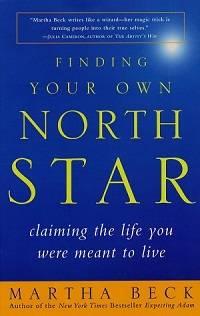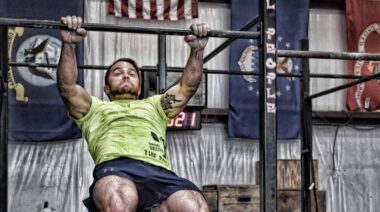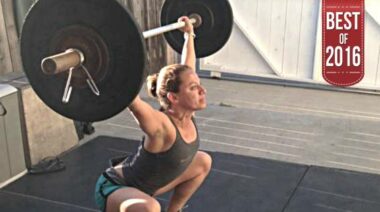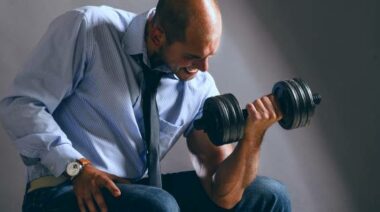When we think about embarking on a fitness regime, we may not initially imagine that it could occupy us body, mind, and spirit. But it can. Many people who start a new project, whether fitness or otherwise, begin to see the world in terms of that project; if you have a hammer, everything looks like a nail. Following is a description of five books I like that were not written with the goal of speaking to fitness issues, but that in my opinion actually have quite a bit to do with them.
1. The Gift of Fear, by Gavin de Becker:
de Becker distills his years of experience as a personal safety and threat assessment expert into a resource to help everyday citizens suss out, defuse and, ideally, avoid potentially dangerous encounters or relationships. In the book, de Becker encourages readers to tune into and act on their intuition, and he shows that logic and evidence actually support these intuitions, just not necessarily on a conscious level.
How does this relate to our fitness? Tapping into that intuition requires us to know ourselves intimately and to keep our own counsel. What works for someone else (e.g., training schedule, amount of weight on the bar, diet) won’t necessarily work for us, and we must do what’s right for us, even if that is different from what others are doing, and even if the reasons for our decisions are not readily apparent.
2. Outliers by Malcolm Gladwell
In this book, Gladwell explores the question of how experts become experts. He argues that innate ability and hard work (fueled by the 10,000 hours rule, which states that expertise in a given domain, such as playing a musical instrument or computer programming, requires roughly 10,000 hours of practice to achieve) only partly explain how some people achieve pinnacles of success in their chosen fields. He suggests that community, culture, and opportunities also play a vital role.
How does this relate to our fitness? First, there’s something to be said for surrounding ourselves with the best resources if we want to see results, so we should do our research when making choices about facility, coaches and the like. Second, while we may not all have access to the same opportunities, we can still capitalize on the ones that cross our paths, and recognize the role of other people, as well as the role of serendipity, in our experiences. And finally, of course, we can work hard!
 3. Finding Your Own North Star, by Martha Beck
3. Finding Your Own North Star, by Martha Beck
This is probably best described as a self-help book, but it is so much more. Harvard-educated Beck provides self help with a big helping of levity on the side. She is a life coach who has counseled many clients in identifying the steps they can take to realize a happier, more fulfilling life. She describes the change cycle everyone goes through when they experience a major life change, either because of an uncontrollable external force or an internal yearning, and she also offers the funniest account of a photocopy shop that you’re ever likely to read.
How does this relate to our fitness? Making changes in our lives can have a domino effect with some unforeseen byproducts, in terms of how we feel about ourselves and how we navigate our relationships. Beck’s observations, rooted in her work with hundreds of clients, can help readers steel themselves for the unexpected.
4. How to Be Happy, Dammit! A Cynic’s Guide to Spiritual Happiness, by Karen Salmansohn
Salmansohn’s book is a brightly illustrated, highly accessible treatment of the existentialist crisis: Why are we here and how can we make the best of it? Combining relevant philosophy, research, and pithy commentary, How to Be Happy, Dammit! makes it possible to consider stopping to eat the roses, even if you get your dander up at the idea of too much woo-woo tree hugging.
How does this relate to our fitness? The book can reassure even the most seasoned curmudgeon that increased optimism does not automatically translate into foolhardiness, CAN translate into increased resolve to meet fitness goals, and doesn’t preclude us from wearing our cranky pants every now and then.
 5. Ender’s Game by Orson Scott Card
5. Ender’s Game by Orson Scott Card
Okay, this one may be the hardest sell in terms of its relationship to fitness. A beloved science fiction novel about an interplanetary war between a futuristic Earth and a race of insect-like aliens nicknamed the Buggers, Ender’s Game chronicles the experience of the protagonist, Ender Wiggin, as he leads an elite army in battle against this foe. The twist: Ender and his crew are 6-9 years old.
How does this relate to our fitness? Sometimes it can feel lonely and like we have the weight of the world on our shoulders when we are working toward fitness goals, especially if we are hitting plateaus or feel like we’re taking steps backwards. Maybe we’re not six-year-olds tasked with saving the Earth, but we’re working toward change, and that can be daunting, especially in light of the competing expectations of our social networks.
So there you have five books that have nothing to do with fitness that actually have quite a bit to do with fitness. You could argue that I just wanted to take this opportunity to write about some of my favorite books—and you wouldn’t be completely wrong. But one of the reasons they are some of my favorites is because they are engaging on a variety of levels; they have a message that speaks to multiple aspects of the human condition. Truthfully, you can probably apply the message in most books, movies, or encounters with another person to your fitness goals. If we allow it to, fitness can engage us mind, body, and spirit. The point is to look for the lesson every day and use it to help us perform a little bit better.






